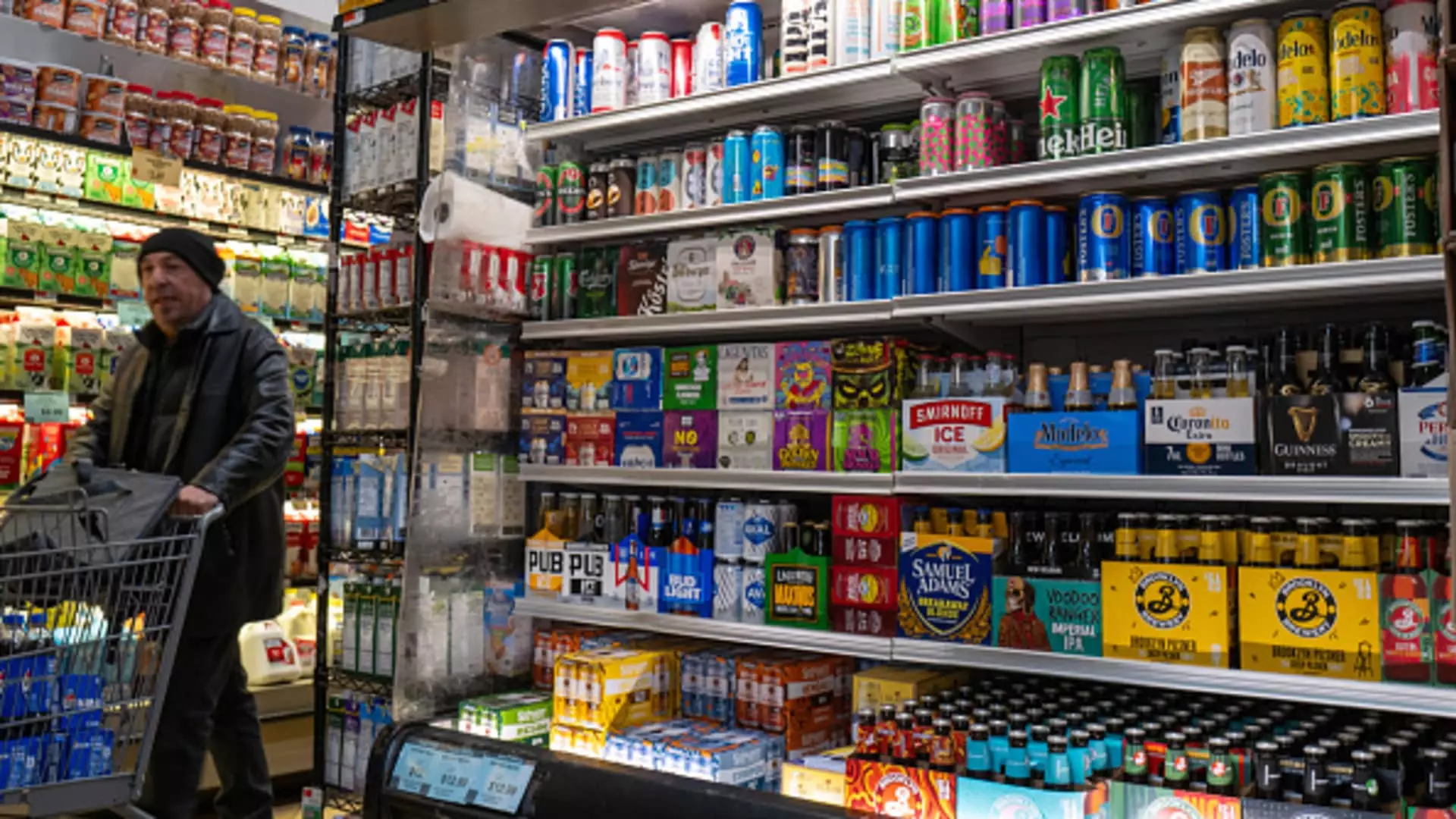In a significant public health advisory released recently, U.S. Surgeon General Dr. Vivek Murthy highlighted a critical issue: the connection between alcohol consumption and an elevated risk of various cancers. This announcement is not merely a wake-up call for individuals, but a call to action for policymakers aiming to mitigate the pervasive dangers linked to alcohol. The advisory indicates that alcohol is not just a contributor to social woes; it stands as a well-established cause for at least seven cancer types, including breast, colorectal, esophageal, and liver cancers.
As alarming as this revelation might be, the reality is that many individuals remain blissfully ignorant of these risks. Evidence suggests that even moderate drinking—defined as one drink per day—can significantly escalate risks for certain types of cancer, such as breast and mouth cancers. The Surgeon General’s findings challenge long-held beliefs about alcohol consumption and its safety, pushing for a much-needed re-evaluation of what constitutes responsible drinking.
With the advancing evidence that pinpoints alcohol as a preventable cause of cancer, Dr. Murthy’s advisory goes beyond mere warnings—it advocates for actionable policy changes. Among the key recommendations are clearer and more prominent labeling on alcoholic beverage containers, including explicit warnings about the cancer risks associated with consumption. Such measures would mirror successful anti-tobacco campaigns that have utilized graphic warnings on cigarette packaging and strengthened regulations in the advertising of tobacco products.
Moreover, the U.S. Surgeon General is advocating for the reassessment of recommended alcohol consumption limits based on emerging research. The intent behind these changes is to enhance public awareness regarding the dangers posed by alcohol and quash the long-standing misconceptions that alcohol is a benign social lubricant.
The data presented in the advisory emphasizes the urgency of these calls for action. Alcohol consumption is linked to approximately 100,000 cancer cases and 20,000 deaths each year in the U.S., a statistic that starkly overshadows the annual fatalities attributed to alcohol-related traffic incidents. Despite these sobering figures, surveys reveal that a vast majority of Americans remain unaware of the direct risks that alcohol consumption poses in terms of cancer.
Indeed, the statistical findings presented by the advisory are eye-opening. Between 2019 and 2020, about 72% of U.S. adults reported consuming alcohol at least weekly, yet less than half associated their drinking habits with increased cancer risks. Furthermore, globally, alcohol was found to be responsible for 741,300 cancer cases in just one year, highlighting the extensive reach and influence of this dangerous substance on public health.
Interestingly, trends among younger individuals suggest a noteworthy shift in societal attitudes towards alcohol. Recent surveys indicate that a significant number of adults aged 18 to 34 perceive alcohol consumption negatively, correlating it with adverse health outcomes. This demographic is increasingly leaning towards non-alcoholic alternatives, showcasing a potential cultural shift away from traditional drinking habits.
The observation that younger Americans are reassessing their relationship with alcohol could pave the way for changing health norms and social expectations surrounding drinking. If this trend persists, it may lead to a broader cultural consciousness that prioritizes health and wellness over recreational drinking, particularly as awareness about alcohol’s cancer risks takes hold.
The advisory issued by the Surgeon General marks a pivotal moment in the ongoing discourse about alcohol consumption in the United States. It provides essential insights into the consequences of drinking, especially in light of its established links to cancer. As we stand at this crossroads, the call for policy changes, education, and awareness must be heeded. The implications of ignoring these warnings extend far beyond personal choice—they touch on the very fabric of public health and wellbeing. The time for action is now, as we all can contribute to a healthier future by reassessing our relationship with alcohol.

